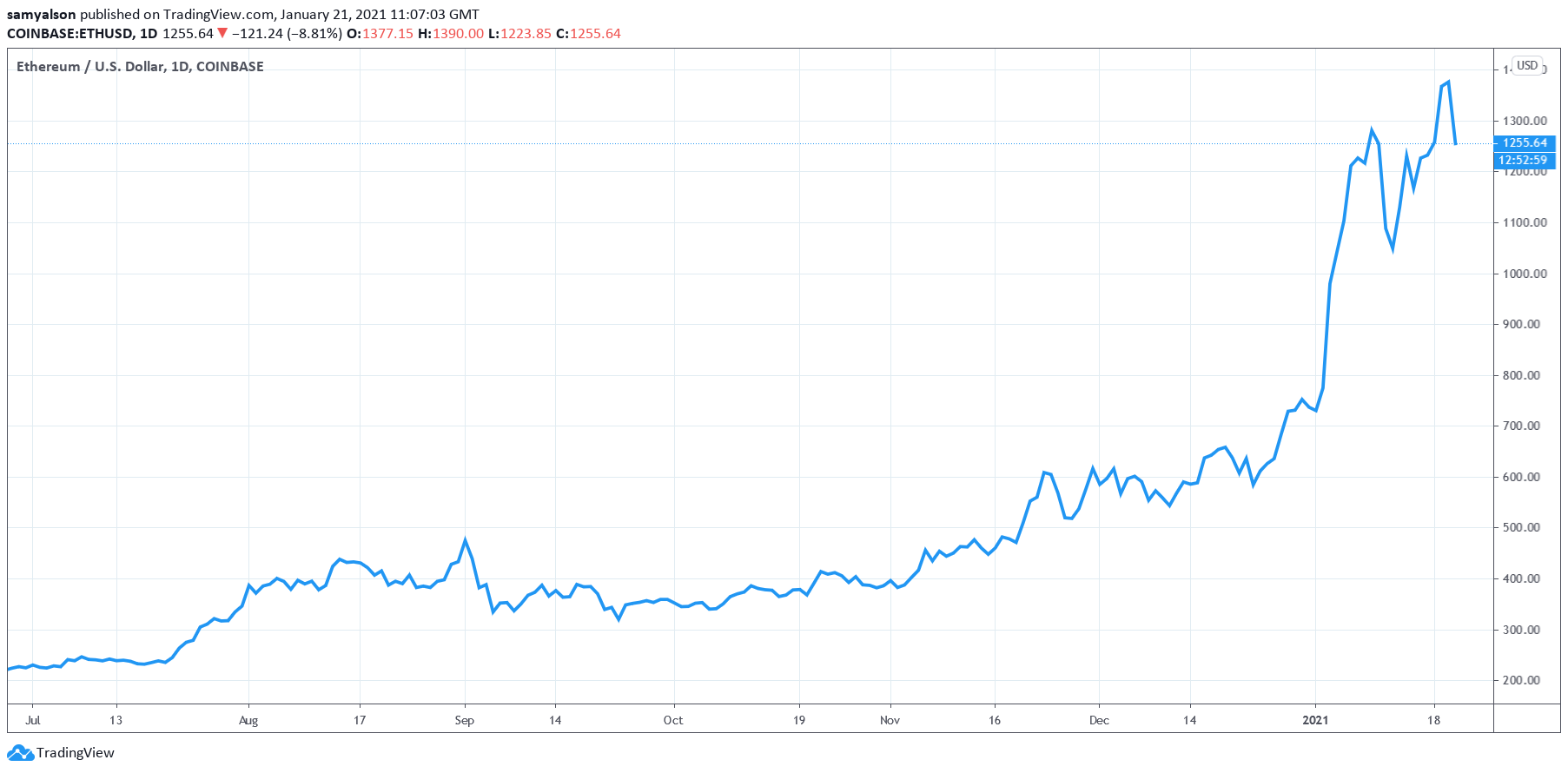
High gas prices are a sensitive issue for the Ethereum community. The problem became widespread by DeFi during the summer when demand and network usage were sky high, resulting in less than palatable fees.
The Ethereum Improvement Proposal (EIP) 1559 is touted as a solution to the problem, but it was not clear whether it would roll out. However, an update from the development team suggests it could appear in 2021.
Ethereum is gaining ground against Bitcoin
In an amazing week for Ethereum, the price tops the previous all-time high of January 2018. Although the daily isn’t above that level, the momentum is still very high for the leading altcoin.
For example, Ethereum’s daily transaction volume is now 30% higher than that of the Bitcoin network. As further evidence of the top of the market leader, the ETHBTC trading pair rose 11% as it hit a new all-time high against the dollar.
Ethereum’s daily transaction volume is going parabolic.
It now processes $ 12 billion worth of transactions every day – $ 3 billion more than Bitcoin.
Imagine if you weren’t bullish on $ ETH. pic.twitter.com/3NfOz1ruiM
– Ryan Watkins (@RyanWatkins_) January 19, 2021
With the next milestone goal, the ETH 2.0 phase 1 scaling through shards, which is to be introduced sometime this year, the thoughts turn to the current chain state.
The rising price of Ethereum has led to rising gas fees. It turns out that using Tether on Tron has outperformed Ethereum for three consecutive weeks.
The problem of high gas charges is making itself felt again.
EIP 1559 in The Works
The Ethereum team is aware of high gas fees. In fact, the EIP 1559 was first launched in June 2018.
Although Ethereum co-founder Vitalik Buterin agreed to the proposal, internal struggles had always cast doubts as to whether it would see the light of day. Does the development work justify the publication of an upgrade that will replace ETH 2.0 anyway?
However, the latest update from ETH core developer Danny Ryan states that it is currently being actively worked on and, according to his estimates, can be released this year.
“Research and development in this area has been picking up pace over the past 12 months and we will optimistically see 1,559 toll mechanics on the mainnet by 2021.”
Reform of the fee mechanism
EIP 1559 does two main tasks. It sets a “market price” for block inclusion and introduces a burning mechanism for transaction fees.
The current fee structure works under an auction system. This is where users submit their gas price bids so that their transactions are carried out by a miner. However, miners tend to pick transactions that earn the highest fees.
A variable basic fee structure comes into play under EIP 1559. This will be higher or lower depending on the congestion on the network. Therefore, instead of a system influenced by users’ willingness to overpay, EIP 1559 sets a market price for gas charges.
Miners keep an entrapment fee for their problems, but the protocol burns the base fee. This brings a whole new dynamic to Ethereum’s monetary policy. Not only are miners not encouraged to manipulate gas charges, but burning also adds a deflationary mechanism to the mix.
The result of all this is a more predictable fee structure and an overall fairer network for everyone involved.
Source: ETHUSD on TradingView.com
